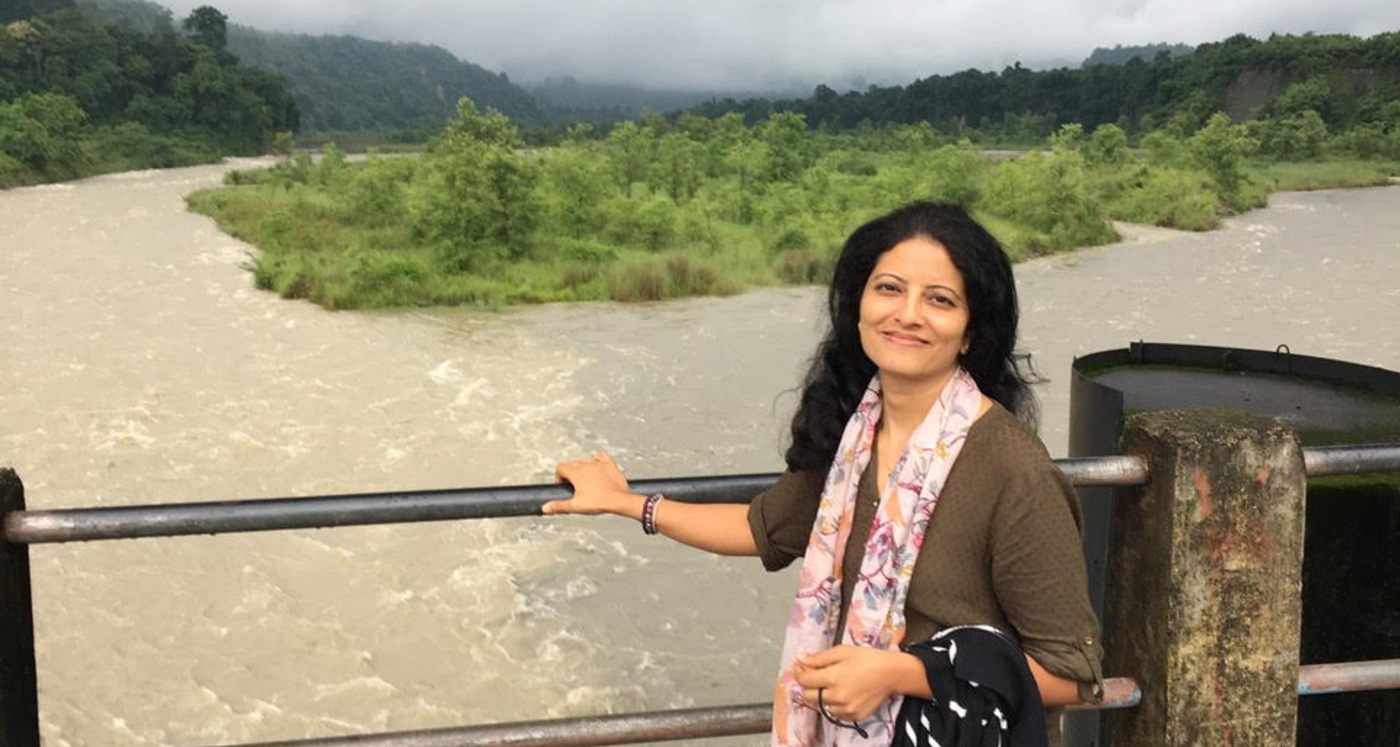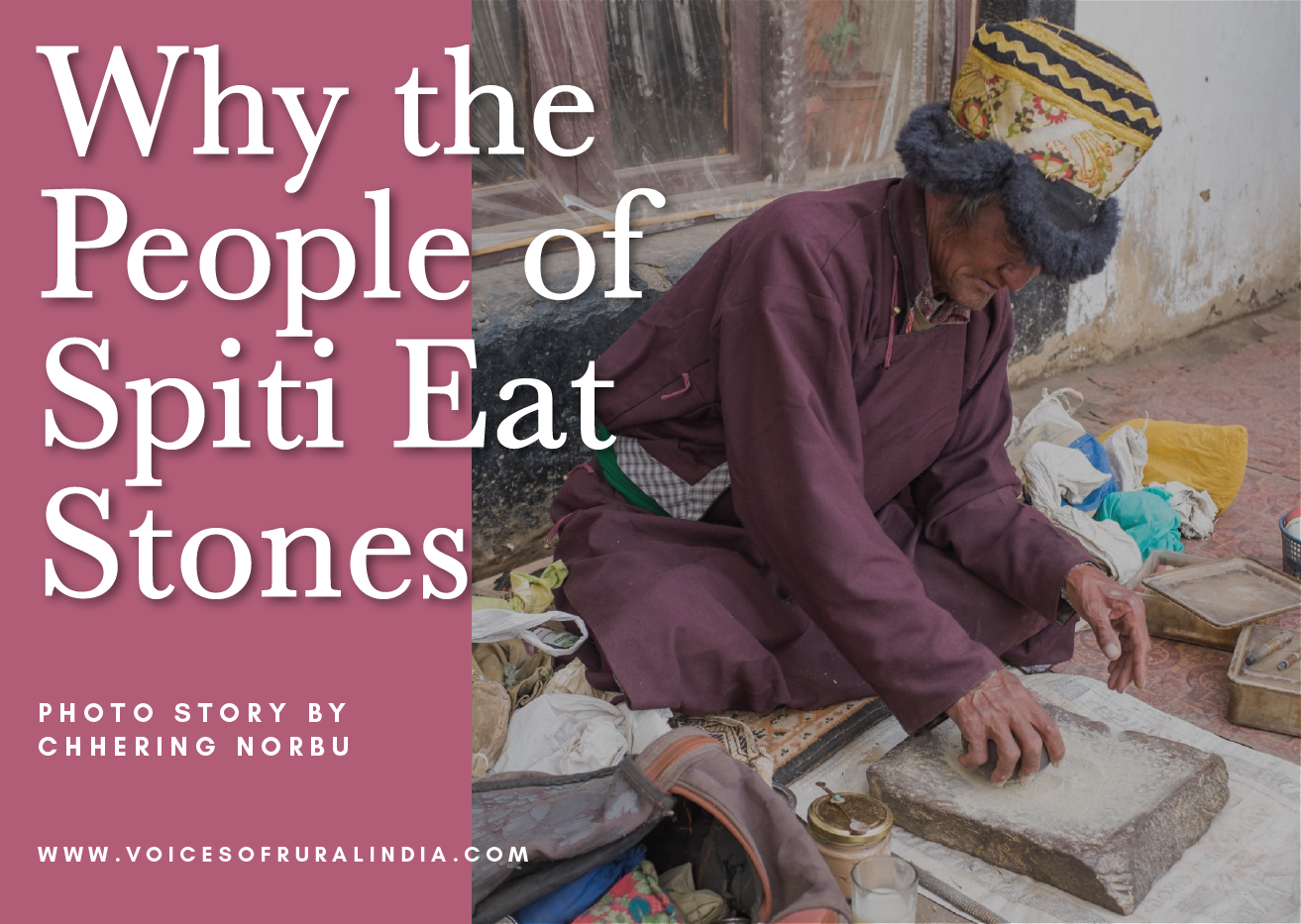
Manisha Pande, Managing Director, Village Ways
22 April 2020 It may seem premature to talk about revival and recovery of Tourism, when India is continuing to deal with rising Covid-19 cases. But, this reset period is a good time to take stock and prepare for the future when tourism re-starts, whenever that may be. Many in the tourism industry believe that demand will grow for rural tourism as travellers seek to rejuvenate from the stresses of this crisis. The belief is travellers will look for less crowded destinations that will also offer them meaningful experiences and rural tourism fits these requirements. We spoke to Manisha Pande, Managing Director of rural and community focused experiential travel company Village Ways, on how the communities she works with are coping, preparations for post-Covid, future of responsible tourism and more:
Q. Covid-19 has impacted everyone in tourism. Since Village Ways works with communities in different states and regions, do you see the pandemic and lockdown impacting all the regions uniformly or do you see differences?
Manisha: Our business is seasonal and Covid hit us at a time when the holiday season was nearly finishing in South India, Rajasthan and in Madhya Pradesh. Few guest groups had to shorten their trips and return earlier than planned. In the Himalayan villages of India and Nepal, there is certainly a bigger impact, as they lost part of the March and April season, as there were cancellations or postponements.
Q. How has this crisis impacted Village Ways? While this crisis is unprecedented, did your contingency plans help? What is helping you stay strong during this crisis?
Manisha: Over these years we have faced marketing setbacks, which were beyond anyone’s control. Nepal earthquake, civil war in Ethiopia, market recession, floods in Kerala and so on. These have taught the communities and us a simple principle—‘Like farming, tourism can also have a good and a bad season and we need to be prepared for both’. But in all of these situations mentioned earlier, only few areas were impacted at a time, so it was possible to survive the storm by taking shelter in other projects. In a way, we are pleased that despite our initial reluctance, we expanded our working boundaries and that helped us to survive when a sudden situation impacted one or few areas.
The Covid-19 crisis is certainly the toughest of all the situations we have faced, as it will impact all the regions at once and it is sort of getting back to our initial stage when we were worried about how we will cope if there are no guests visiting the villages. The big questions are how this will impact the communities from autumn onwards when the next season begins and also us as a company. Both are important, as they are complementary to each other.
Our contingency plan is based on being very strict about our expenses. Since we understand our size and limited resources, we do have a strong financial monitoring system and reviews are done regularly throughout the year. I think in any situation, and particularly the one we are in now, the key is to take right and timely financial decisions. This aspect has, in many ways, kept us strong to deal with this crisis. Another thing that has always kept us motivated is the support from our guests who have always stood by us in very situation. Amidst the corona crisis, we have been getting so many emails from guests asking about us and our villages. And village teams have also been in touch asking us about the well being of our guests, so it is such a special connect between both sides.
Our strength also lies in our senior advisory team, who have from time to time helped us with their views and suggestions to keep us strong and motivated.
Q. How are the communities you work with reacting? From your experience, do you believe these communities, which are in rural areas, will be more resilient as they are not entirely dependent on tourism?
Manisha: The communities are very understanding about the situation and they understand that this is a world wide problem and that they must look after themselves and their villages. They are respecting guidelines from local authorities. As of now, there has been no concern raised about the next season in terms of Tourism business. We do believe that things will be manageable, as we are very hopeful that Tourism will return to the villages after the Covid crisis is over and also we have maintained our basic aim of keeping Tourism as a supplementary source of livelihood for all the participating communities and since the income is distributed widely, there is no concentration of income in fewer families thereby reducing risk of over dependence.
Q. Now that everyone's got some time to get used to the new reality, what plans are you putting in place: 1. for your team currently, 2. to keep morale of employees and the communities high and to keep them engaged and linked to the larger world, 3. to help sustain or to generate income for the communities until the tourists are back, 4. for post-lockdown and later for when the tourists return?
Manisha: We have come together as a small but strong team to discuss what we should be doing in this crisis. We all agreed that we need to phase out our activities and review things from time to time, as there is uncertainty. We also agreed that we need to think step by step dealing with one problem at a time rather than thinking about all the consequences now and trying to find solutions to everything.
Team - We are doing everything to reduce administrative overheads with the aim of retaining our small staff through the emergency and after. We are in touch with the communities ensuring that any requirements they raise for immediate assistance, be passed on to our charitable trust.
Keeping team members positively engaged - We have started few social media campaigns like a photo competition for our staff, guides, local drivers and community team members and they are getting an opportunity to appreciate the glimpses of nature around them. Also soon, we are starting with a 'keep in touch' campaign linking guests and the villages.
We are in touch with our team members and are continuing with the work that we usually do during the off season. Our sales team members work virtually and they are connected by phones and email, so they are working on product reviews and pricing. This year, we are particularly focussed on holiday products that will suit our domestic market. We are already receiving enquires from domestic travellers.
Our local field team members are analysing guest feedbacks, listing out the maintenance work, but we have delayed maintenance work and will only start closer to season time, when we are certain about bookings.
Alternate source of income for the villages
Training center - We have been engaged in providing training in different aspects of homestay operations and hospitality where the community team and the guides are the training resources and also our own staff members. This will be a useful alternate source of income for the communities if there are fewer customer bookings in the next season.
Partnerships with Government - We have worked with Uttarakhand State Tourism Board in the past to support development of Tourism activities in rural areas. We have recently formalised an association with Madhya Pradesh Tourism Board and we hope to involve our local communities as resource for trainings. This will also help in creating alternate source of income whilst the guests are not able to visit the villages. We do think that these partnerships will be very helpful for us and our communities in the longer run. The fact that our community team members are now trainers, gives them huge motivation and encouragement and along with this we also expand the source of income for the villages.
Handicraft Project - We are also planning to restart some activities around handicrafts, which had been thought about earlier but was put on hold due to lack of funds. We want to restart this project in all our villages.
Q. How do you think this pandemic and the crisis it has created will impact tourism as a whole in India and Responsible Tourism in particular?
Manisha: This pandemic has impacted everything as of now, and Tourism is one of the worst hit. The biggest problem is the uncertainty of when things will normalise. Time is crucial and whilst everyone in Tourism business is prepared for a short term crisis, Covid’s impact will be seen over a longer time and, without income, businesses will surely struggle to keep people employed and cover overhead costs.
Responsible Tourism businesses in particular should expect to recover sooner. It will surely be a gradual process for travellers returning to mainstream travel, particularly inbound, and small enterprises and operators can possibly manage to survive even if small income that gradually increases starts trickling.
Q. What should the RT community and policymakers focus on?
Manisha: For the RT community, at this time, the focus should be on collaborations with each other for experience sharing as well as for marketing. This will help to reassure travellers in terms of basic standards as well as for benefit sharing policies.
With regards to policy making, this is very good time to introduce any new policies/ changes and the RT community could come out with suggestions collectively. As per our experiences, there is much help needed for training on things like first aid, hygiene and sanitation, emergency procedures, evacuation etc, as these trainings are best provided by government and they can also endorse it formally and this helps customers to feel safe and this will become particularly more important in the post-Covid time.
Q. Many believe that post this crisis, travellers will prefer to travel to rural regions that are inherently less crowded. Do you feel so and do you have any concerns? How should travel companies and communities prepare for this?
Manisha: I feel so much will depend on future government and international regulations in the short term and medical progress, particularly in relation to vaccination, in the longer term.
Once restrictions start to be lifted properly, in say 3-4 months’ time, initially I feel travel will be cautious and local. We will all seek out less crowded places and choose travel methods that don’t concentrate people close together. Ultimately, travel might return to where we were, but whether there will be a big shift towards greater appreciation of the fragility of our environment and of the threat to our freedoms is hard to foretell. Our gentle form of tourism will certainly not diminish and should have the ability to grow following this experience.
If the preferences of travellers shift significantly to off beat locations and rural areas, these being less crowded, it will mean that the responsibility of those of us working in rural regions will also increase, so we need to also prepare for that aspect. The preparation mainly lies in creating accommodation capacities that are manageable for communities and in ensuring that tourism activities do not disturb local life in a negative way.
We work very closely with our team members and our field teams (from the villages) are closely connected to the village communities, so from time to time, we will be reviewing the situation and will prepare ourselves as things move. We have good team coordination as we operate holidays in different regions and this will help us immensely.
Q. What are the lessons of this crisis for you and for the industry? What will help us come back stronger?
Manisha: This Covid crisis has given us a chance to review many aspects of our work and we feel that we must work much harder on domestic market. The other learning, as a company, is not to be over dependent on income coming from sale of holidays alone. We must diversify the sources of income for the company to be able to face any such crisis in a better way.
There is a good learning from every crisis and, as the RT community if we all come together to create some common policies and boundaries, it will help create a positive and responsible environment for all Tourism practitioners. We also should make the most of this time and continue to work on aspects of our work that needs to be improved or changed. I have personally been involved in the social media side of our work since the lockdown and I must say it has been an interesting and learning experience. This is the best time to take views and suggestions from your team members and this can be immensely helpful to come back stronger.
All the positives of an RT approach to tourism remain strong and I think a strong future focus should be on respect for the places we visit, that is to say respect for our hosts’ social, environmental and physical structures.







